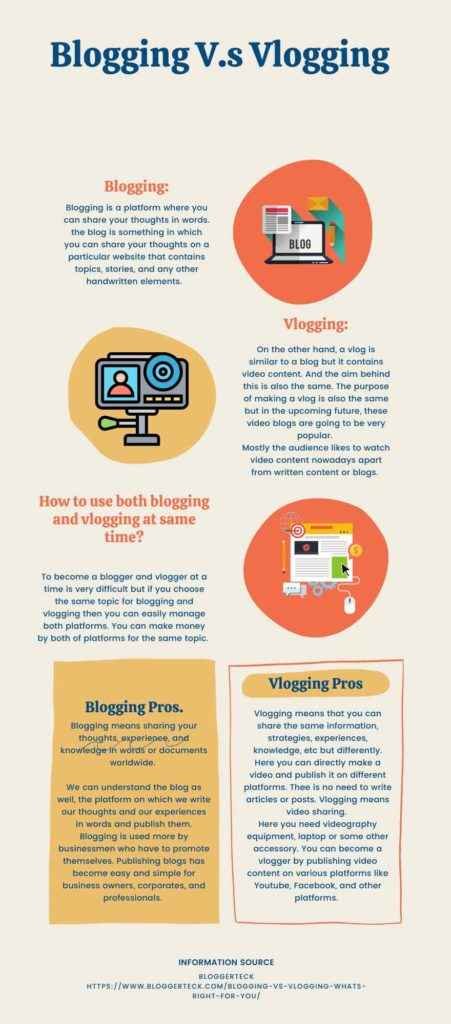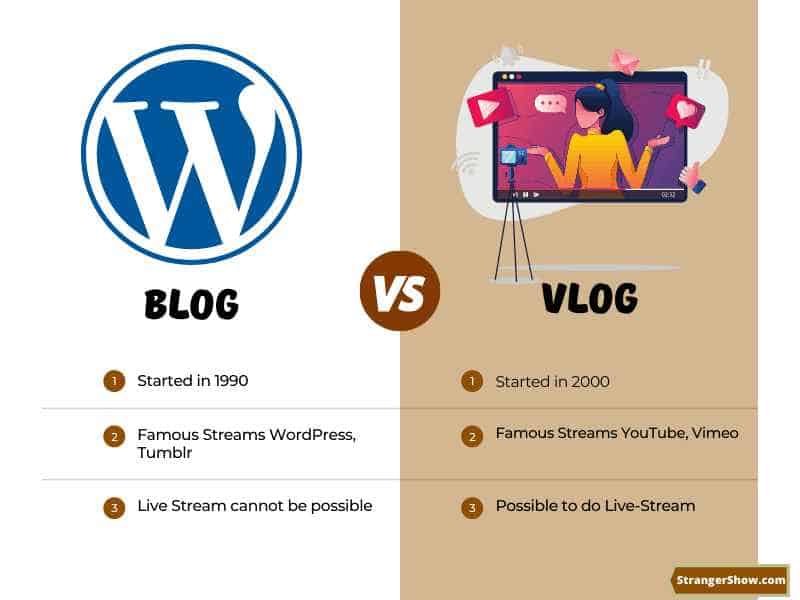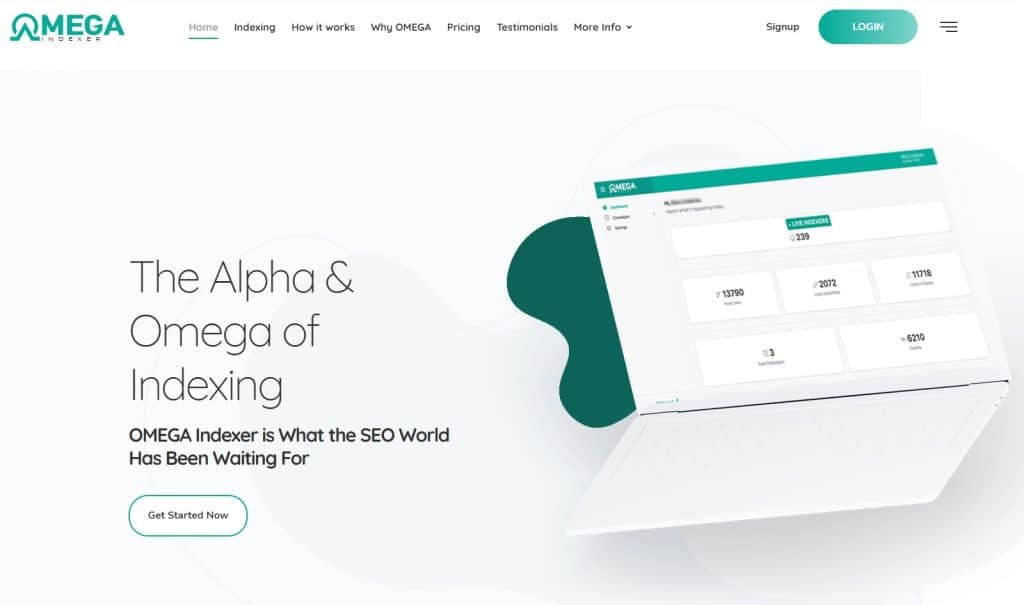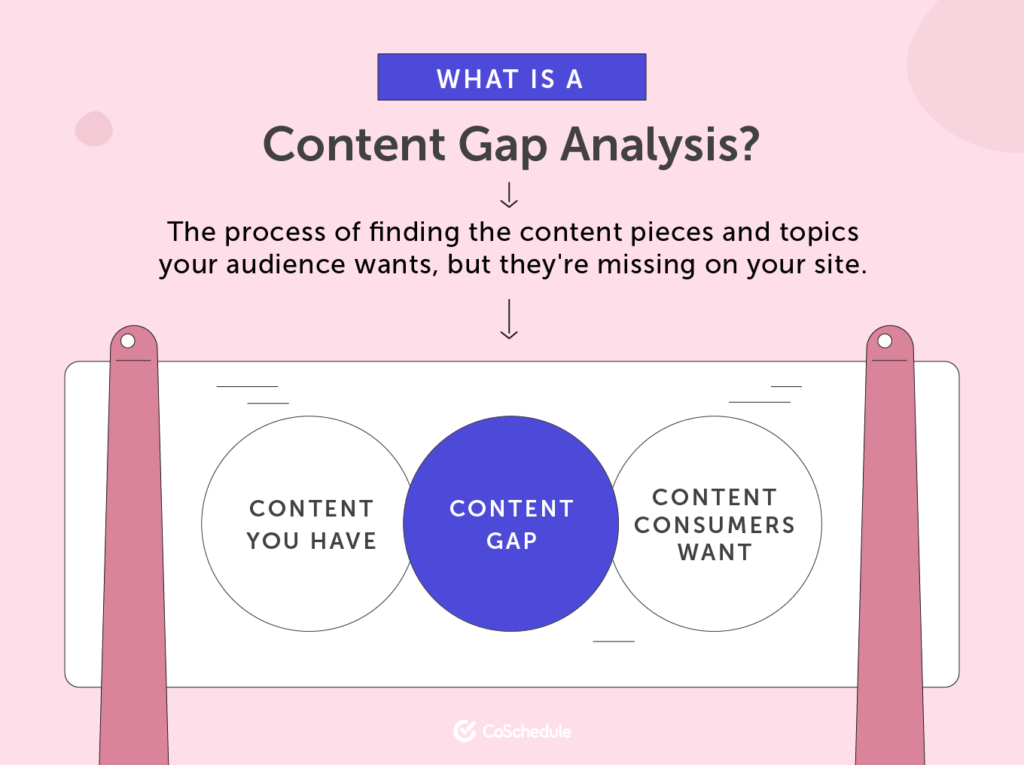In the ever-evolving world of content creation, blogging and vlogging continue to be two of the most popular platforms. Whether you’re a seasoned content creator or just starting, chances are you’ve contemplated which medium would be more profitable. But the question remains, Blogging vs. Vlogging: Which is more profitable? As an expert in both fields, I’ve researched and analyzed the data to help you understand the financial potential of each platform. So, sit back and get ready to discover which path is the best for you.
Blogging vs. Vlogging: Which is More Profitable?
Features
| Blogging | Vlogging | |
|---|---|---|
| Format | Written | Video |
| Production time | Longer | Shorter |
| Content flexibility | Higher | Lower |
| Technical skills required | Lower | Higher |
| Reach | Higher | Lower |
| Diversity | Can cover a wide range of topics | Depends on the niche |
Specifications
| Blogging | Vlogging | |
|---|---|---|
| Cost of equipment | Lower | Higher |
| Monetization options | Affiliate marketing, sponsored posts, ads, e-books, courses, etc. | Sponsorships, YouTube Ads, merchandise, etc. |
| SEO optimization | Crucial for ranking higher in search engines | Keywords matter, but not as much |
| Time to profitability | Longer term (3 – 6 months or more) | Shorter term (3 – 6 months or less) |
| Consistency of content | Requires consistent writing and publishing | Requires regular filming and editing |
| Engagement with audience | Can receive comments and feedback on written posts | Can receive comments and feedback on videos, but may not be as extensive as blogging |

Blogging vs. Vlogging: Which is More Profitable?
Blogging
Short Description: Blogging is the practice of writing and publishing content online, usually in the form of articles or essays.
Pros:
- Easy to start with minimal investment
- Great for SEO purposes and building a brand
- Allows for longer and more in-depth content
- Can work as a standalone business or as a supplement to an existing business
Cons:
- Requires consistent writing and updating
- May take time to build an audience and make money
- May require technical skills like web development and SEO
Key Points:
- Over 600 million blogs exist online
- The top 5% of bloggers can make six-figure incomes
- 83% of businesses believe that their blogging is a critical component of their business
Features:
- Simple to set up using platforms like WordPress and Squarespace
- Can make money through advertising, sponsored posts, affiliate marketing, and selling digital products like e-books and courses
- Can be written in a variety of formats, including news articles, opinion pieces, personal essays, and how-to guides
Suggestions: Starting a blog can be a great way to build your brand and make money, but it requires consistent effort and a long-term approach. Focus on building your audience through quality content and effective promotion strategies.
Vlogging
Short Description: Vlogging is the practice of publishing video content online, usually in the form of personal vlogs or sponsored videos.
Pros:
- Allows for more engaging and dynamic content
- Can connect with audiences on a more personal level
- Can generate income through advertising, sponsorships, and affiliate marketing
- Can be shared on multiple platforms, including YouTube, Instagram, and TikTok
Cons:
- May require technical skills like video editing and production
- May be more expensive to start due to equipment and software costs
- May require extensive planning and scripting for quality content
Key Points:
- YouTube is the second-largest search engine, with over 2 billion monthly users
- Vloggers can earn up to $250,000 per sponsored video
- The top 1% of YouTubers earn up to $885,000 per year
Features:
- Requires a camera and editing software like Adobe Premiere or Final Cut Pro
- Can make money through advertising, sponsorships, affiliate marketing, and selling merchandise
- Can create a variety of formats, including personal vlogs, scripted content, travel videos, and product reviews
Suggestions: Vlogging can be a great way to build your brand and monetize your content, but it requires a significant investment in time and equipment. Focus on creating quality videos that connect with your audience and use social media and other platforms to expand your reach.
Conclusion
Overall, both blogging and vlogging can be profitable, depending on your niche, audience, and approach. Blogging tends to be less expensive to start and requires consistent writing and updating, while vlogging requires more equipment and technical skills but allows for more engaging content. Ultimately, the best choice depends on your strengths, interests, and goals. Consider your budget, audience, and content strategy when selecting a platform to build your brand and make money online.

Guidelines for Using Blogging vs. Vlogging: Which is More Profitable?
1. Identify Your Target Audience
Before creating content, it’s important to know who your target audience is for either blogging or vlogging. This will help you create content that’s relatable and valuable to your audience which, in turn, can increase engagement and profit.
2. Choose the Platform That Best Fits Your Content
Both blogging and vlogging have different platforms and it’s important to choose the platform that will best suit your content, audience, and brand. For instance, if your content is more visual, vlogging on YouTube could be more effective. Whereas if your content is more informative, blogging on a website could be better.
3. Consistency is Key
No matter what platform you choose, consistency is key. Posting regularly and consistently will help build your audience, and they will start expecting new content from you. This will keep your readers or viewers engaged and interested, increasing the chances for profitability.
How To About Blogging vs. Vlogging: Which is More Profitable?
1. How to Know Which One to Choose: Blogging or Vlogging?
To determine which one – blogging or vlogging – is more profitable, answer the following questions:
- What skills do you have? Writing or talking in front of the camera?
- What resources do you have? Do you have a camera for vlogging or a laptop for blogging?
- Who is your target audience? Are they more inclined to read or watch content?
- What niche are you interested in? Is it more suitable for writing or making videos?
2. How to Start a Blog
To start a blog, follow these steps:
- Pick a niche or topic that you are passionate about and know something about.
- Choose a blogging platform such as WordPress, Blogger, or Wix.
- Domain name and hosting: register a domain name and choose a reliable hosting provider.
- Design and customize your blog with a theme, widgets, plugins, and other features.
- Create high-quality and engaging content regularly, and promote your blog on social media and other platforms.
3. How to Start a Vlog
To start a vlog, here are the essential steps:
- Decide on your niche and target audience.
- Get a camera, tripod, and microphone to shoot your videos.
- Create a YouTube channel and brand it with a unique name and image.
- Plan and script your videos based on your niche and target audience.
- Shoot and edit your videos using video editing software such as Adobe Premiere, Final Cut Pro, or iMovie.
- Publish your videos on your YouTube channel, promote them on social media and other channels, and engage with your audience.
4. How to Monetize Your Blog
Here are some ways to monetize your blog:
- Google AdSense: display ads on your blog and earn money when people click on them.
- Affiliate marketing: promote products or services and earn a commission for each sale you refer.
- Sponsored content: work with brands and publish sponsored posts or reviews on your blog.
- Premium content: offer exclusive content, tools, courses, or services to your readers for a fee.
5. How to Monetize Your Vlog
Here are some ways to monetize your vlog:
- YouTube monetization: enable ads on your videos and earn money based on views and clicks.
- Affiliate marketing: promote products or services in your videos and earn a commission for each sale you refer.
- Sponsorship deals: partner with brands and create sponsored content or paid product placements in your vlogs.
- Sell merchandise: create and sell your own branded products such as T-shirts, hats, or backpacks.
Frequently Asked Questions (FAQs) for Blogging vs. Vlogging: Which is More Profitable?
1. What are the key differences between blogging and vlogging?
Answer: Blogging involves writing and publishing content on a website, whereas vlogging involves creating and publishing videos on social media platforms. Blogging focuses on written content, whereas vlogging focuses on visual content.
2. Which is more profitable – blogging or vlogging?
Answer: It depends on various factors such as audience engagement, content quality, niche, advertising revenue, and brand deals. Both blogging and vlogging can be profitable depending on the creator’s strategy and execution.
3. How do bloggers and vloggers make money?
Answer: Bloggers and vloggers make money through various channels such as advertising revenue, sponsored content, affiliate marketing, merchandise sales, and collaborations with brands and other creators.
4. Which platform is better for monetization – YouTube or a blog?
Answer: Both platforms offer opportunities for monetization, but YouTube has a higher potential for making money through ads and sponsorships. However, a blog can generate more revenue through affiliate marketing and selling digital products such as e-books, courses, and printables.
5. Is it possible to combine blogging and vlogging for maximum profitability?
Answer: Yes, combining blogging and vlogging can enhance one’s online presence and profitability. Creators can use their blogs to complement their videos and vice versa, leading to increased engagement and monetization opportunities.
In conclusion, both blogging and vlogging can be profitable in their own ways. Blogging allows for more flexibility in terms of content creation and can cater to a wider range of audience interests. On the other hand, vlogging provides a more personal and engaging way to connect with viewers, which can lead to increased audience loyalty and monetization opportunities.
However, it’s important to note that success in either field requires dedication, hard work, and a strong understanding of your audience and niche. Both mediums require consistent content creation and promotion in order to build a following and attract brands for sponsorship or affiliate partnerships.
Ultimately, the choice between blogging and vlogging should be based on your personal preferences, strengths, and goals. If you enjoy writing and have a talent for creating engaging articles, blogging may be the way to go. If you prefer being in front of the camera and have a knack for visual storytelling, vlogging may be a more profitable avenue for you.
Regardless of which path you choose, remember to stay authentic and true to your brand. With perseverance and the right strategies, both blogging and vlogging can be profitable and rewarding endeavors.

One of the Top SEO Consultants In Bangladesh. In 7 years of my career, I have worked with more than 80 brands & uncountable love from my SEO clients. To provide SEO service I have an in-house SEO team.




